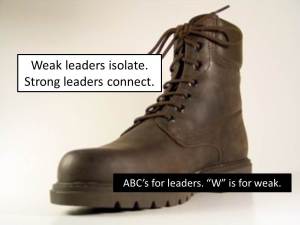The way things are going registering bright university students are becoming something of a treasure hunt, according to this article on The Evening Standard. One more thing: research-intensive universities are the ones that will fight this battle most fiercely.
Author: perezparedes
London universities are offering cash incentives to lure the brightest A-level students
The way things are going registering bright university students are becoming something of a treasure hunt, according to this article on The Evening Standard. One more thing: research-intensive universities are the ones that will fight this battle most fiercely.
Technology can bring us together if we want it to
Read at The Evening Standard August 2
Some excerpts:
Forster thought that the new technology would alter our way of thinking and make us more susceptible to ideological manipulation; he also thought we’d eschew direct experience of things in favour of learning about them online. Well, he has a point: at the Ladies’ Final at Wimbledon, I sat next to some intelligent girls who weren’t watching the match because they were tweeting about watching the match.
[…]
The reason for the new togetherness is, paradoxically, technology itself. Children bring their tablets and smartphones to the family sofa rather than texting in their bedrooms. It means that we’re not talking only to each other while we’re looking at the telly; half of us use connected devices while we’re watching programmes; a quarter of us are sharing the viewing with other people on social media or text.
[…]
So, there’s companionable physical closeness to the rest of the family even if we’re all doing different things. And that’s fair enough. Jane Austen once described a sociable evening in Kent to her sister: “… one card table was formed, the rest of us sat and talked. Some play cards and some do not, or some play one game, and some another”. She wouldn’t have recognised a situation where some of the conversations are done by busy fingers with distant friends, but the notion of people engaged in different activities while sitting together was normal.
The difference is that the people in Jane Austen’s room would have been present to each other in a way that you’re not if you’re tweeting people outside it. Yet this is contemporary togetherness: family members doing their own thing while engaging in common viewing; keeping in touch with friends about Britain’s Got Talent while looking at it with their mum.
What is a literature review?
Link to the resource by Anthony Curtis, Mass Communication Dept., University of North Carolina at Pembroke
My idea of leadership
PhD research funding — Computational Stylistics — Trinity College Dublin
From Carl Vogel
to: FORENSIC-LINGUISTICS@jiscmail.ac.uk
Funding is available for a research project at the intersection of
machine learning, text analysis and dialogue analysis conducted within
the Computational Linguistics Group (www.cs.tcd.ie/clg) of the Centre
for Computing and Language Studies (www.scss.tcd.ie/ccls) in the
School of Computer Science and Statistics at Trinity College Dublin
(www.scss.tcd.ie).
The funding covers EU-level tuition fees and a stipend of 16K euro per
annum, and is aligned with the Centre for Next Generation Localisation
(CNGL; www.cngl.ie). The funding may extend to three years, from September
2013.
The successful candidate will have an excellent academic record (first
class or II.1 primary degree) in cognitive science, linguistics,
computer Science, or a related discipline. She or he will be highly
motivated, with strong written and oral communication skills and will
possess demonstrable proficiency in computer programming.
English language certification is required of applicants for whom
English is not a native language, the minimum requirements are: IELTS:
7.0+, TOEFL iBT: 100+, TOEFL pBT: 600+, CEF: C1+, or equivalent.
Applicants will have to satisfy the general admission requirements for
postgraduate research study at Trinity College Dublin
(www.tcd.ie/Graduate_Studies/)
The successful candidate will participate in the Structured PhD
Programme within the School of Computer Science and Statistics
(www.scss.tcd.ie/postgraduate/structuredphd/). The research will be
supervised by Carl Vogel (www.scss.tcd.ie/~vogel), and the successful
candidate will participate in research activities of the Computational
Linguistics Group and CNGL, for example, the Dublin Computational
Linguistics Research Seminar (www.cs.tcd.ie/clg/DCLRS).
Prior to application for admission as a postgraduate research student,
through the Graduate Studies office, as indicated above, to be
considered for this funding, applications should be sent to Tricia
Fowler (Tricia.Fowler@tcd.ie) in the form of:
– an academic CV
– an English language transcript of academic records
– a research statement
– three letters of reference with contact details of referrees.
Fullest consideration will be given to applications that arrive
before August 2, 2013.


